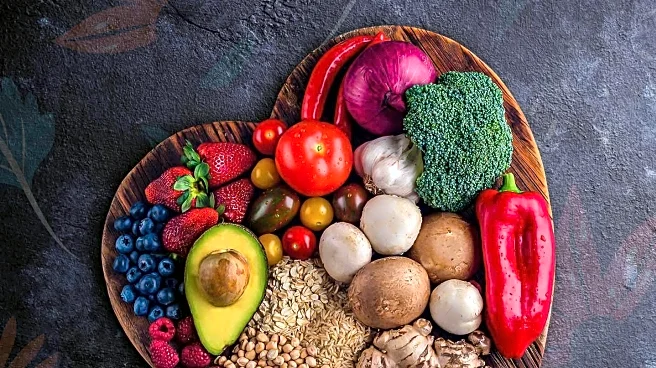What is the story about?
What's Happening?
Dr. Rudolph Bedford, a gastroenterologist at Providence Saint John’s Health Center, emphasizes the importance of gut health and its impact on overall well-being. He highlights foods rich in fiber, probiotics, and prebiotics as essential for maintaining a healthy gut microbiome. Key foods recommended include bananas, apples, kimchi, ginger, black beans, almonds, yogurt, and kefir. These foods support digestion, nourish gut bacteria, and provide essential nutrients. Dr. Bedford notes that gut health affects various bodily functions, including digestion, mood, and sleep.
Why It's Important?
Gut health is crucial for overall health, influencing immune function, metabolism, and mental well-being. Consuming foods that support gut microbiome balance can prevent symptoms like constipation, diarrhea, and bloating. The inclusion of fiber-rich and fermented foods in the diet can enhance digestive health and promote a healthy balance of gut bacteria. This approach can lead to improved energy levels, better digestion, and reduced inflammation, contributing to overall health and disease prevention.
What's Next?
Individuals are encouraged to incorporate a variety of gut-friendly foods into their diets consistently. This includes increasing the intake of fruits, vegetables, nuts, and fermented foods. Health professionals may continue to research and promote dietary strategies that optimize gut health, potentially leading to new dietary guidelines and recommendations.
Beyond the Headlines
The growing interest in gut health reflects broader trends in nutrition research, focusing on the microbiome's role in health. Ethical considerations include ensuring accurate information dissemination and addressing potential biases in dietary recommendations. The cultural shift towards prioritizing gut health may influence food industry practices and consumer choices.















